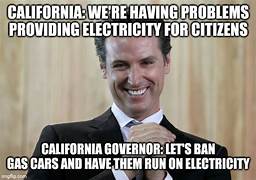For two years the teachers in LAUSD played hooky. They refused to teach in a classroom, based on ideology, not science. So, in a compromise the district allowed them to stay home, pretend to teach over the Internet. Of course, we found out that this was a fraud and the kids learned almost nothing.
So, in another comprise the teachers agreed to teach another four days, with pay, to make up for the two years. This is a complete scam—and the losers are the kids, the taxpayers and the future.
LAUSD is a failed district—once again we know the goal is not education but the payoff of the unions so they continue to fund the Socialist Democrats. Need another reason to flee the district, unless you are looking for babysitting for your child, not an education.

By Kyle Stokes, LA1st, 9/28/22
After reaching a compromise with Los Angeles Unified school officials, the district’s teachers union has agreed to drop plans to boycott one of the optional days of extra classes scheduled for later this school year.
Under a tentative deal LAUSD and United Teachers Los Angeles negotiators reached Tuesday, the four “acceleration days” will still happen, but they’ll be rescheduled to take place during both winter and spring break.
Superintendent Alberto Carvalho pushed for scheduling these “acceleration days” to create extra classroom time for students who’ve struggled since the pandemic’s onset. Teachers union members had balked at the idea, saying it amounted to an end-run around UTLA.
“It extended our school year without bargaining with us beforehand,” said Phylis Hoffman, a teacher in Wilmington and a member of the union’s negotiating team. “That’s what we feel is a major victory, is that the school year will remain the same length for teachers and for students.”
Here’s what will change if the agreement is finalized:
- New dates: Instead of holding these acceleration days on four Wednesdays throughout the year, the acceleration days will take place on Dec. 19, Dec. 20, Apr. 3 and Apr. 4 (all Monday and Tuesday dates).
- As originally planned, attendance on these acceleration days will be optional for both students and teachers. However, teachers who show up will be paid for extra days of work — which was also part of the original plan. Last spring, LAUSD board members voted to set aside roughly $70 million to cover this cost.
- No more ‘random Wednesdays’ off: The four originally-scheduled optional days — Oct. 19, Dec. 7, Mar. 15, Apr. 19 — will become normal school days. Attendance on those days will be required.
- A new last day of school: Since the optional days now overlap with previously-scheduled off-days on the calendar, LAUSD can now shave four days off of the end of its school year. Students’ new last day of school would be Friday, June 9.
All of this is pending a vote of the teachers union’s membership, which UTLA spokesperson Scarlett Ying said would take place early next week. A school board vote will also likely be required to seal the agreement.
On Wednesday morning, Carvalho sent a tweet “celebrat[ing] the consensus” the two sides had reached.
“Differing perspectives may sometimes keep children from the best they should get,” the superintendent wrote, “but fair alternatives can always be negotiated. A win is only a win if kids, too, are winners.”
The Backstory: Why These Extra Days?
Numerous studies and standardized tests have shown that two years of COVID-related disruptions were disastrous for many students’ academic performance. Researchers have suggested extending the school year is a “particularly promising” strategy for schools looking to help students get back on track.
One study in a Massachusetts district even found that students’ attendance at tutoring sessions over school breaks improved their chances of a good score on standardized tests.
This research was the backdrop for LAUSD board members’ vote to approve the calendar for the 2022-23 school year last April.
Had Carvalho opened negotiations with UTLA, he may have been able to convince them to add four additional, mandatory days to the standard 180-day year. But there was little time. At the time, summer break was fast approaching and — with no official calendar yet — families didn’t even know when their children would be expected to report back in the fall.
Carvalho had urged board members to include his original plan for four acceleration days, arguing that “every single day outside of school … is a lost opportunity for them.” Because attendance at these days would be optional for students and teachers, negotiations with the union weren’t necessary. Board members agreed.
How Did This Become So Controversial?
LAUSD officials’ decision to schedule the additional days unilaterally struck UTLA as cynical: union leaders felt as though Carvalho was playing off of teachers’ sympathies for students, since the additional days couldn’t be meaningful to students without teachers’ participation. In that sense, they wondered, were the acceleration days truly voluntary?
As summer progressed — and as separate negotiations for a new labor contract for teachers grew more tense — UTLA officials say they asked for details about plans for the acceleration days and received little information from LAUSD. In August, roughly half of the union’s reported membership of 34,000 voted to boycott the first acceleration day.
With Tuesday’s tentative agreement, that boycott is now off.
“We have been transparent with the Los Angeles Unified community regarding the need for acceleration days,” Carvalho said in a statement, “and providing greater opportunities for students most impacted by the pandemic to address learning loss.
“Though our original plan,” his statement added, “would have allowed real-time understanding of student gaps, this updated plan allows students to benefit from the instruction and support provided by fully staffed schools.”
Many UTLA members feel that the new plan — overlaying the optional days onto consecutive days during previously scheduled breaks — will be more effective and cause less disruption than the previous plan.
“It’s going to be a little bit more cohesive than these four random Wednesdays,” Hoffman said. She noted the timing of the winter break acceleration days will be especially well-timed for students who need to bring a grade up at the end of the fall semester.
As part of the deal, the union and district will also form a joint committee to offer recommendations for how schools should use these extra days — a provision that Hoffman said shows the union’s “commitment” to ensuring the days are as meaningful as possible.
But will students be more likely to make use of these days now that they’re scheduled during a holiday break?
We’ll find out in December.



